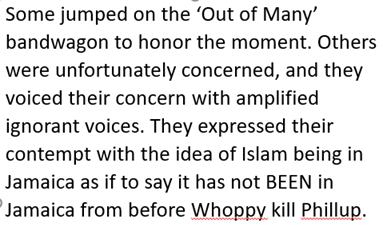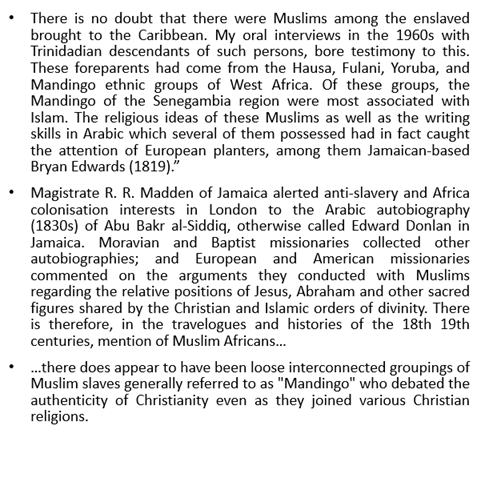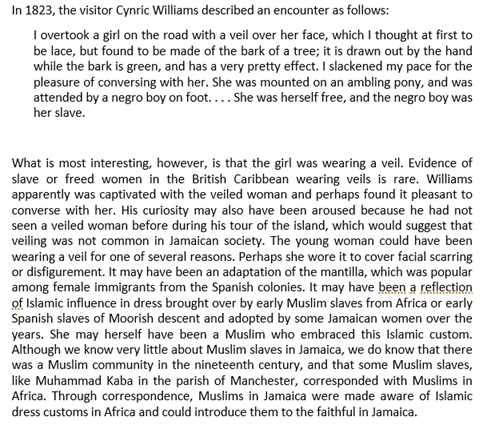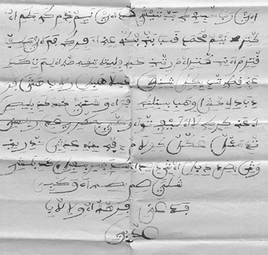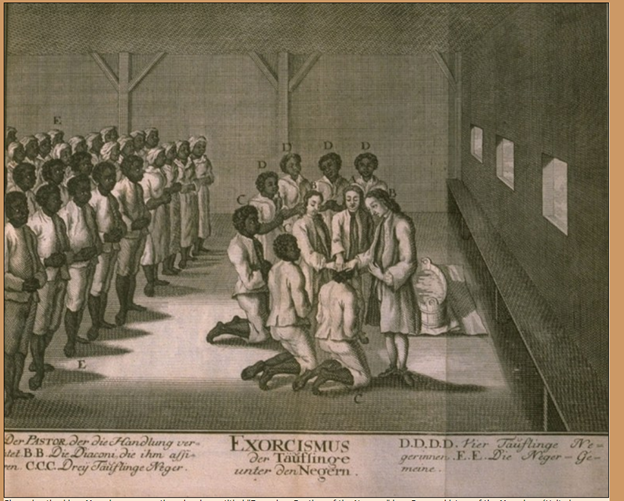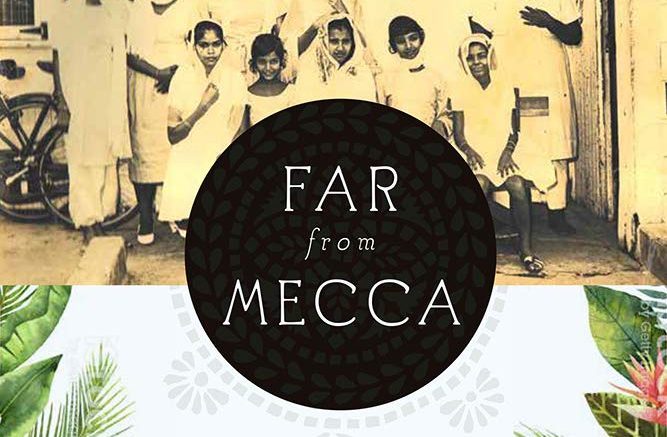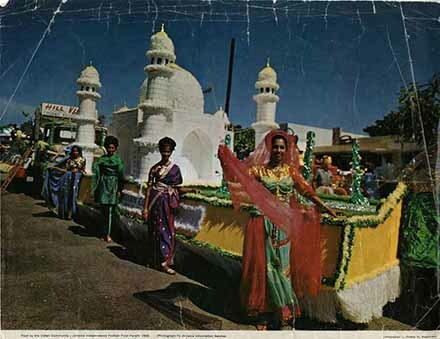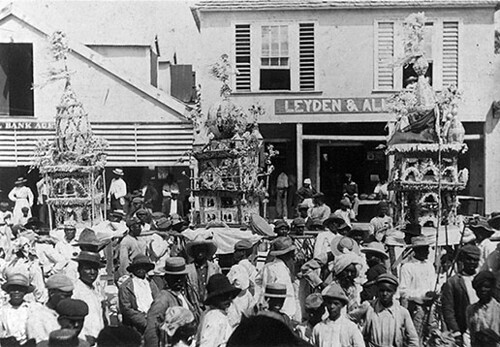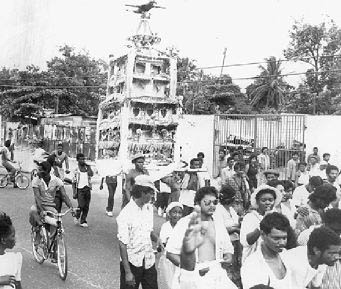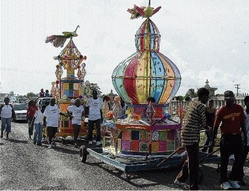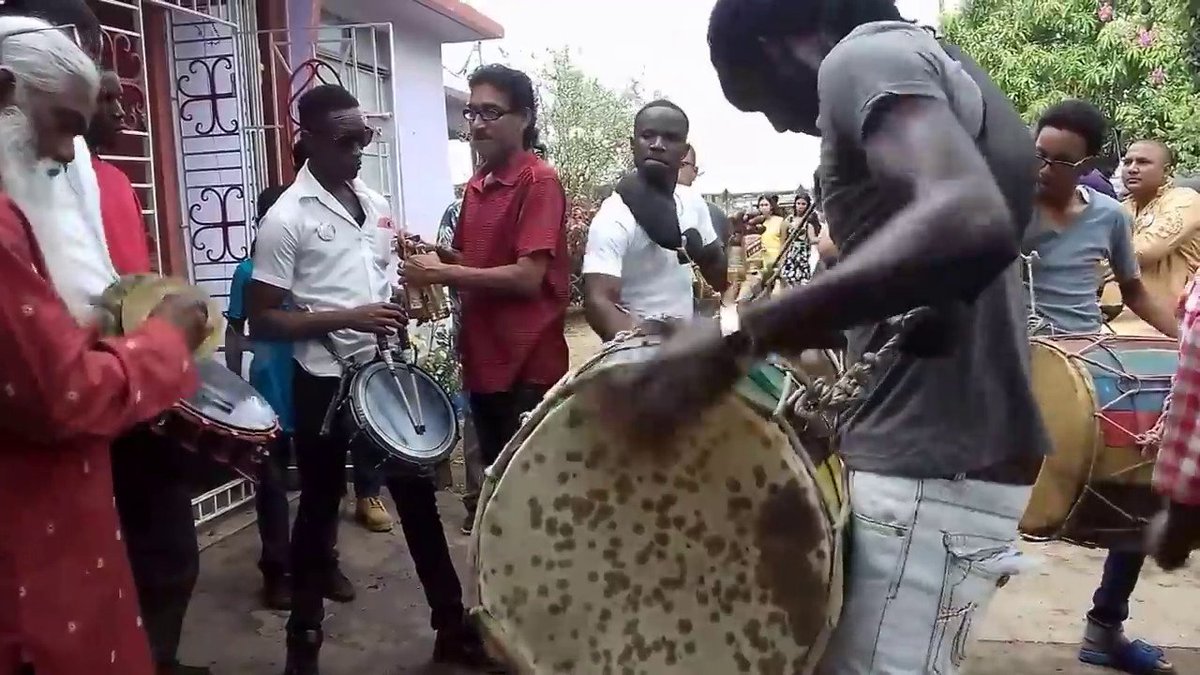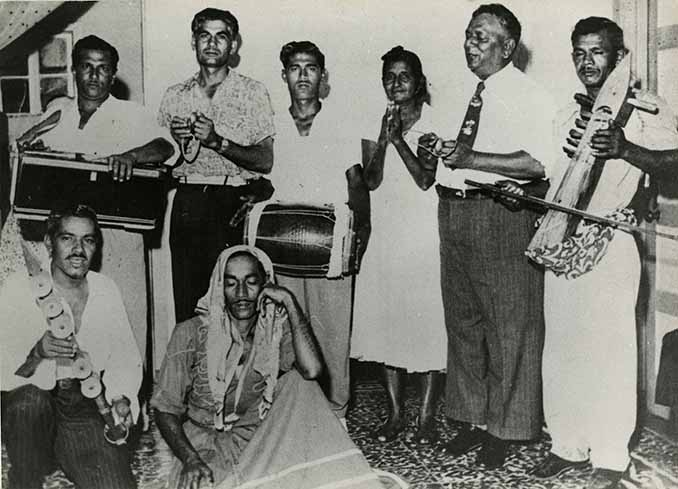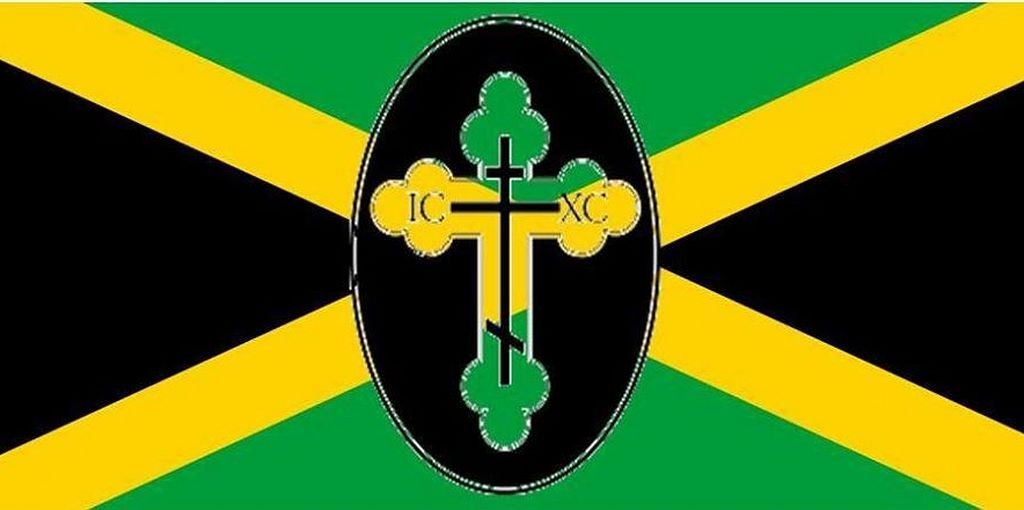A tracing of Jamaica’s Islamic Heritage
I want to start off by saying congratulations to Sameerah Dyer and Salama Abdul-Majeed for their recent success in their Principles of Business CSEC exams! Their success and the comments under the article put out by the @JamaicaGleaner
I want to start off by saying congratulations to Sameerah Dyer and Salama Abdul-Majeed for their recent success in their Principles of Business CSEC exams! Their success and the comments under the article put out by the @JamaicaGleaner
prompted me to create this thread. By far, the most common reactions by Jamaicans on the different social media are commendations for the students’ work. Some Muslims celebrated under the comments with Divine words. Some non-Muslims were genuinely curious about Islam in Jamaica.
A note on Jamaica’s history
Reading Jamaica’s history through Muslim lens is already a controversial act. Much of the history we are familiar with, were/are read through the extremes of Eurocentric and Afrocentric lens. The Afrocentric perspective, which does not necessarily
Reading Jamaica’s history through Muslim lens is already a controversial act. Much of the history we are familiar with, were/are read through the extremes of Eurocentric and Afrocentric lens. The Afrocentric perspective, which does not necessarily
mean an African-centered viewpoint, thinks about a cultural purity of an imagined Africa in conversation w/ the terror of Whiteness. This outlook can often limit the religiosities of those involved, sometimes only ascribing so-called ‘African Traditions’ to our ancestors. However
, I won't be trying to discount the importance of African Traditions and their impact on the Jamaican religious economies in this thread, but I endeavor to salvage parts of our history by tracing our Islamic heritage from slavery to the contemporary situation in Jamaica.
Slavery
Islam landed in Jamaica on slave ships. The first Muslims on the island were slaves taken as property from West Africa by the Spanish to labor on the plantations. Muslims continued being forcefully taken when the British took over the island. The archives however may
Islam landed in Jamaica on slave ships. The first Muslims on the island were slaves taken as property from West Africa by the Spanish to labor on the plantations. Muslims continued being forcefully taken when the British took over the island. The archives however may
remain silent about very specific parts of our history if they were not ‘loud,’ which is to say, they did not conflict with white comfort or planning. A substantial portion of our Islamic history during slavery has fallen victim to this. Nonetheless, some academics have put
forward different accounts and theories to talk about Islam in Jamaica during slavery. Three academics I will mention here are Drs. Sultana Afroz, Maureen Warner-Lewis, and Steeve O. Buckridge.
A further examination of the three's works will reveal conflict in their research and sometimes explicit debate between Maureen and Sultana.
Maroons, Maroon Wars, and the Baptist War
Afroz surveys the Muslim theological tradition among the Maroons and during the Maroon Wars. Afroz also talks about the crypto-Muslims in Jamaican society before and at the time of the Baptist War.
Afroz surveys the Muslim theological tradition among the Maroons and during the Maroon Wars. Afroz also talks about the crypto-Muslims in Jamaican society before and at the time of the Baptist War.
Warner-Lewis is in strong opposition to Afroz’ views and if you are interested in reading about their views, here are works you can consult:
Emancipation
“In honor of full emancipation in the British West Indies in 1838, Muhammad Kabā Saghanughu, a ninety-year-old formerly enslaved man in Jamaica, wrote an address using Arabic letters to represent English sounds (‘ajami) and submitted it to Sir Lionel Smith,
“In honor of full emancipation in the British West Indies in 1838, Muhammad Kabā Saghanughu, a ninety-year-old formerly enslaved man in Jamaica, wrote an address using Arabic letters to represent English sounds (‘ajami) and submitted it to Sir Lionel Smith,
governor of Jamaica, who kept it in his personal papers. Kabā Saghanughu is the only known author of a first-person slave narrative to have survived all phases of slavery, from his kidnapping in Africa in 1777 to emancipation sixty-one years later.”
To read more about this:
To read more about this:
Discerning Muslim history during the above periods (slavery and emancipation) is very challenging for a couple of reasons. It is important to remember that a lot of religious scrubbing was happening during the periods mentioned earlier.
To become slave was also to become Christian, not in the sense of a white Christian but rather to recognize the curse of Ham as one’s correct genealogy. Thus, the colonial gaze often understood its property (the slaves) as Christians and if there was no explicit confrontation
with Islam it may not have been recorded.
Other than the religious scrubbing that took place during this period, reading the period through Afrocentric lens can produce colonial work. Religion is a colonial category and it begs for exclusive attachment to a particular professed
Other than the religious scrubbing that took place during this period, reading the period through Afrocentric lens can produce colonial work. Religion is a colonial category and it begs for exclusive attachment to a particular professed
faith. That is, it boxes us into one tradition without a possibility of being in several spaces at once. Slaves may have also existed in liminal spaces of their religiosity. An Afrocentric reading might claim beliefs to very specific religious categories, usually
‘African Traditions,’ whereas the average Afro-Jamaican might have been walking vessels for Interreligious confluences.
I recommend reading the chapter “BLACK LITERARY ISLAM: Enslaved Learned Men in Jamaica and the Hidden Sufi Aesthetic” in Far from Mecca: Globalizing the Muslim Caribbean by Aliyah Khan to be more familiar with the Muslim Heritage during this period.
Indentureship
The contemporary situation of Islam in Jamaica can be traced to the revival of the faith by Indian indenturers. From 1845 – 1917, about 36,000 Indian indenturers came to Jamaica, approximately 10% of whom were Muslims.
The contemporary situation of Islam in Jamaica can be traced to the revival of the faith by Indian indenturers. From 1845 – 1917, about 36,000 Indian indenturers came to Jamaica, approximately 10% of whom were Muslims.
The subsequent migration of Indians to Jamaica, the Merchant Migration (early twentieth century), also brought several Muslims to the island.
Hussay
Hussay is an observance of the martyrdom of the Prophet Mohamed’s grandson Hussein as well as some of the early followers. In Jamaica, it adopted many Hindu practices because the Hindus were very involved in helping the Muslims to memorialize the Prophet’s grandson.
Hussay is an observance of the martyrdom of the Prophet Mohamed’s grandson Hussein as well as some of the early followers. In Jamaica, it adopted many Hindu practices because the Hindus were very involved in helping the Muslims to memorialize the Prophet’s grandson.
Hindus added some of their poojas and practices as well as their bhajans (hymns) to the celebration. Thus, Hussay became a creolized celebration of Indian heritage but the Muslim origins and purpose are not forgotten even to this day. Hussay also featured many Afro-Jamaicans
during indentureship. Some Afro-Jamaicans even helped to make the elaborate Tazias (a tomb replica for Hussein and Hassan), and played the instruments (nagara, tassa, manjira) during the Hussay process. The celebration came to be known as Indian carnival in Jamaica.
My mom told me about how they used to celebrate it by throwing money in rivers after they dumped the tazias in a river and then doing poojas for blessings. The Muslims who created the celebration of Hussay were part of the Shi’a sect of Islam.
Indian Sessions
Indian sessions are my favorite part of being a Coolie. We celebrate our Indian heritage through food, music, and dance. These gathering were often weekly during indentureship to work through Indian religious, cultural, and social matters.
Indian sessions are my favorite part of being a Coolie. We celebrate our Indian heritage through food, music, and dance. These gathering were often weekly during indentureship to work through Indian religious, cultural, and social matters.
Regardless of religious beliefs, Indians showed up to Indian sessions and these sessions were sometimes frequented by Afro-Jamaicans.
Here is a recording with Muslims discussing Islamic matters by the Hon. Dr. Olive Lewin, an ethnomusicologist and folklorist :
Here is a recording with Muslims discussing Islamic matters by the Hon. Dr. Olive Lewin, an ethnomusicologist and folklorist :
Muslim organizations in Jamaica
The Islamic Society of Jamaica began in 1950 and it built two mosques, one in Westmoreland, the other in Spanish Town. They organized prayer meetings, Maulad Shariff, and Eid. This was formed by Indo-Jamaicans.
The Islamic Society of Jamaica began in 1950 and it built two mosques, one in Westmoreland, the other in Spanish Town. They organized prayer meetings, Maulad Shariff, and Eid. This was formed by Indo-Jamaicans.
The Islamic Council of Jamaica is the current organizing agency for the Muslims on the island. Most of the Jamaican Muslims today are part of the Sunni sect of Islam.
Muslims and the Law
The churches in Jamaica opposed the celebration of Hussay saying it was pagan and a celebration of idolatry and the Indians were not allowed to celebrate it for some periods because of the churches and their connections to the government.
The churches in Jamaica opposed the celebration of Hussay saying it was pagan and a celebration of idolatry and the Indians were not allowed to celebrate it for some periods because of the churches and their connections to the government.
Muslims were not allowed to marry as Muslims in Jamaica until “in 1946 when an Indian Marriage and Divorce Bill was enacted by the Legislative Council which provided for the registration of Maulvis and Pandits as Muslim and Hindu marriage officers and for the legal recognition
of such Muslim and Hindu Marriages.”
Muslims were not allowed to own land in Jamaica and the state would take lands when a Muslim father died without a will.
Muslims were not allowed to own land in Jamaica and the state would take lands when a Muslim father died without a will.
Rastafari
One of the most interesting historical silences in our recent history is the Indian influence on Rastafari. What is ‘relevant’ to this thread is the repetition of “Allah Alpha” in an early Rastafari prayer/chant at Pinnacle (the first Rastafari commune) that had to be
One of the most interesting historical silences in our recent history is the Indian influence on Rastafari. What is ‘relevant’ to this thread is the repetition of “Allah Alpha” in an early Rastafari prayer/chant at Pinnacle (the first Rastafari commune) that had to be
recited every night. The prayer had many Hindi/Urdu words as well. Here is a recitation of the chant in Hélène Lee’s documentary “The First Rasta”:
If you are interested in some of the Hindu influences on Rastafari, here is a YouTube video with Ras Flako Tafari explaining these influences:
Folklore
In Jamaica, you can often hear never open bottles/containers lying around as they may contain a ‘duppy’ in them. I can even remember my grandma talk about these spirits that were found in bottles on our shores.
In Jamaica, you can often hear never open bottles/containers lying around as they may contain a ‘duppy’ in them. I can even remember my grandma talk about these spirits that were found in bottles on our shores.
The bottling of ‘duppies’ is a transformed retention of the Jinn or more familiar the ‘genie’ from Islamic culture. I do not know if it is from Indo-Jamaicans or Afro-Jamaicans, or both, further research may enlighten me on this.
Jamaica Post-Independence
Many of the descendants of Muslim Indian indenturers still practice the faith. The Muslim make-up of Jamaica also consists of many Post-Independent Jamaican migrants. They may come from African countries (Nigeria, South Africa, …),
Many of the descendants of Muslim Indian indenturers still practice the faith. The Muslim make-up of Jamaica also consists of many Post-Independent Jamaican migrants. They may come from African countries (Nigeria, South Africa, …),
Middle Eastern countries (Iran, Saudi, …) and also Asian countries (India, Pakistan, …). Intra-regional migrations have also seen the coming of Muslims from countries like Guyana and Trinidad.
Today, the organizing done by the Islamic Council sees to it that Muslim
Today, the organizing done by the Islamic Council sees to it that Muslim
celebrations are held in Jamaica like Eid and the Council also tries to educate the wider-Jamaican society about Islam and those curious about the faith. They are doing much wonderful work. If you are interested in what they have been up to, much has been published in the Gleaner
At this point, it is important to realize that Islam never existed as a monolith in Jamaica. Instead there were waves of Muslims that were taken to the island and their beliefs had several cultural negotiations that has resulted in different products. Before confronting
the young scholars’ about their religion, let’s approach them with curiosity asking how to improve our school system. Instead of jumping to Islamophobic language, ask yourself if you are familiar enough with the Islamic tradition not just in Jamaica but also with the
world and how can you draw parallels and recognize discontinuities between the Muslims in Jamaica and very small subset of Muslims that you possibly have encountered in mass media or your Church WhatsApp group.
@mymunahhh I hope this is interesting to you!

 Read on Twitter
Read on Twitter
